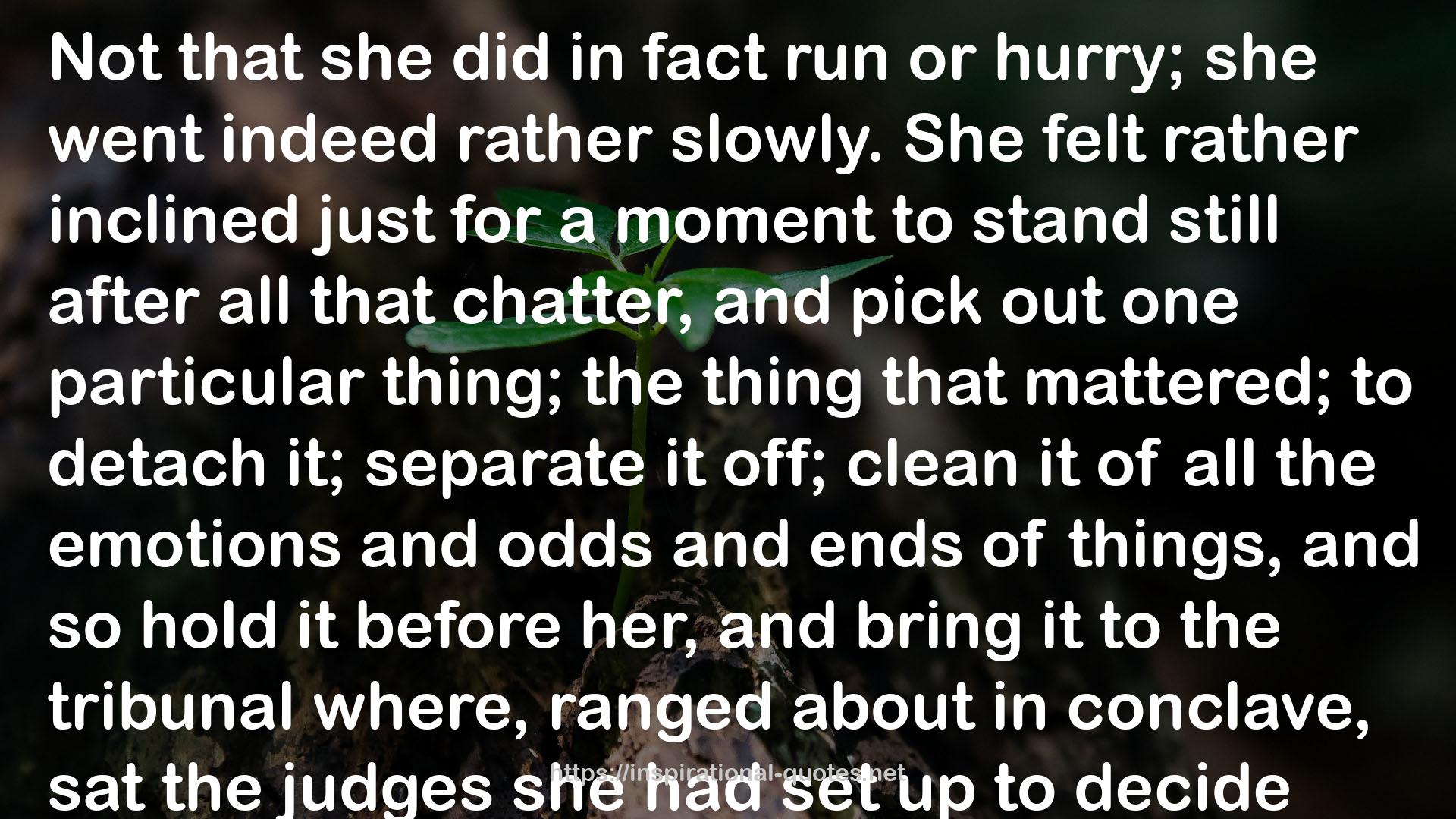" Not that she did in fact run or hurry; she went indeed rather slowly. She felt rather inclined just for a moment to stand still after all that chatter, and pick out one particular thing; the thing that mattered; to detach it; separate it off; clean it of all the emotions and odds and ends of things, and so hold it before her, and bring it to the tribunal where, ranged about in conclave, sat the judges she had set up to decide these things. Is it good, is it bad, is it right or wrong? Where are we all going to? and so on. She righted herself after the shock of the event, and quite unconsciously and incongruously, used the branches of the elm trees outside to help her to stabilise her position. Her world was changing: they were still. The event had given her a sense of movement. All must be in order. She must get that right and that right, she thought, insensibly approving of the dignity of the trees’ stillness, and now again of the superb upward rise (like the beak of a ship up a wave) of the elm branches as the wind raised them. For it was windy (she stood a moment to look out). It was windy, so that the leaves now and then brushed open a star, and the stars themselves seemed to be shaking and darting light trying to flash out between the edges of the leaves. Yes, that was done then, accomplished; and as with all things done, became solemn. Now one thought of it, cleared of chatter and emotion, it seemed always to have been, only was shown now and so being shown, struck everything into stability. They would, she thought, going on again, however long they lived, come back to this night; this moon; this wind; this house: and to her too. "
― Virginia Woolf , To the Lighthouse
